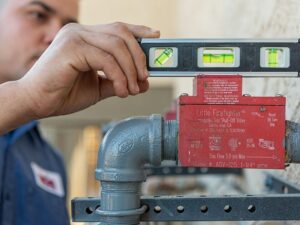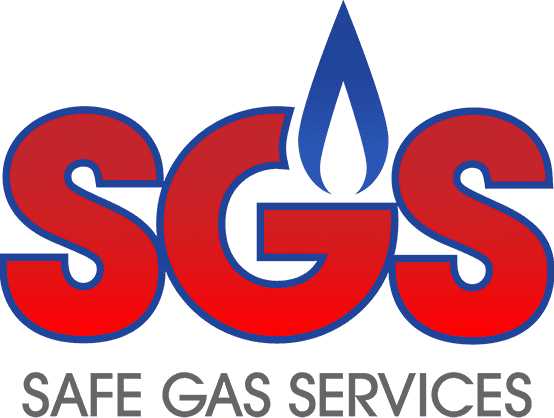If you live in souther n California, you already know the inherent dangers of an earthquake. You also probably know how common these natural disasters are throughout the United States and the world. In fact, according to the United States Geological Survey (USGS), there are roughly 20,000 earthquakes detected each year around the world. While some smaller magnitude earthquakes may be hardly noticeable, others can cause significant damage to your home or office and threaten the lives of those you care for.
n California, you already know the inherent dangers of an earthquake. You also probably know how common these natural disasters are throughout the United States and the world. In fact, according to the United States Geological Survey (USGS), there are roughly 20,000 earthquakes detected each year around the world. While some smaller magnitude earthquakes may be hardly noticeable, others can cause significant damage to your home or office and threaten the lives of those you care for.
In this blog, we’re taking a closer look at one of the easiest ways to protect your property from gas fires or explosions caused by a seismic event. Installing an earthquake valve on your property will shut off the gas automatically in the event of a 5.2 magnitude or greater earthquake.
At Safe Gas Services, we work hard to ensure that your property and those you care about remain safe in the event of a natural disaster or other emergency. In the event of a gas leak or burst pipe, an emergency shutoff valve can prove essential to protecting your property. The earthquake valve can s
erve as a manual emergency gas shut off to the gas system entering your property. Our certified technicians are experienced in earthquake valve installation so that you can prevent extensive damage in the event of an earthquake. Allow our team of trusted and experienced technicians to handle all of your gas, heating, plumbing and retrofitting services to keep your space safe and functional.
What is an Earthquake Valve?
If you don’t work in the industry, you may not even be familiar with this device in the first place. So, let’s start at the beginning: what exactly is an earthquake valve? Also known as an earthquake activated gas shut off valve, an earthquake valve is a small device that is fitted onto your gas line. The trigger mechanism is activated in the event of a 5.2 magnitude or greater earthquake and automatically shuts off the flow of gas into your property.
This small, yet important, device can work to keep your building (and everyone and everything inside of it) safe in the event of a seismic event or other emergency. When an earthquake strikes, it can easily break a gas line and cause structural damage. Shutting off the flow of gas following an earthquake can dramatically reduce the risk of a gas leak or explosion. In the event of an earthquake of a magnitude of 5.2 or higher, an earthquake valve can protect your home, property and loved ones.
How Does an Earthquake Valve Work?
Now that we’ve identified what this device is, let’s take a closer look at how it works. First, the earthquake valve is installed directly downstream of the Gas Company bypass tee on the property owner’s gas line. It’s easy for homeowners and business owners to identify the valve as it’s usually a bright red color that stands out from the rest of your gas line.
As part of the earthquake valve, there is a sensor under the diaphragm, right by the impulse line. In the event of an earthquake, pressure will be detected by this sensor. When a certain level of pressure is detected, the diaphragm lifts and pushes up a spring. When the spring releases, the latch mechanism of the valve will then release. This action then automatically closes the gas line, which will effectively shut off the supply of gas to the building. The mechanism itself is surprisingly simple but incredibly effective at keeping your property safe in the occurrence of a seismic event.
But now you’re probably wondering: who can install a gas shutoff valve? Well, you’ll want to leave that to the professionals. Our team of highly-trained technicians are experienced in earthquake valve installation and can have this procedure done fast and done right.
Is an Earthquake Valve Required by Law?
As such an important device, many people may assume that an earthquake valve is required by law in both residential and commercial properties. But like most legislation, it’s more complicated than that. Depending on where you live and when your building was constructed or renovated, the earthquake valve regulations will vary.
Generally, earthquake valve regulations depend on where you live. Counties and cities with a high risk of seismic events, such as Los Angeles or San Francisco, are currently adopting new codes and updating old ones to require the installation of earthquake valves to protect those in their communities. Earthquake valves are mandated in Los Angeles, Santa Monica, Malibu, Inglewood and other local municipalities. Earthquake valves are typically required when a property transfers ownership and requires an earthquake retrofit inspection.
However, some older buildings may be exempt from these new regulations unless a major renovation occurs. In many areas, renovations to your property, in the excess of $10,000 dollars, will require many updates, such as an earthquake valve installation. Additionally, if you’re building a new home or commercial property, you may also be required to install an earthquake shutoff valve.
Other municipalities in earthquake hazard zones are working to require professional earthquake valve installation for homes, offices, and large commercial buildings, such as hospitals and government buildings.
3 Benefits of Installing an Earthquake Valve in Your Home or Office
It’s clear to see just how valuable this simple device can be when a seismic even strikes your home or business. But, in addition to the security and safety provided by an earthquake valve, there are other benefits to having one installed in your home or office.
Here are three reasons why anyone living in an earthquake-prone area should have an earthquake valve installed by professionals:
- Protection in the event of an earthquake: a gas leak or explosion can cause significant damage to your home and threaten the health and safety of anyone who is inside. Installing an earthquake shutoff valve is the most effective (and often the most cost-effective) way to eliminate these threats and keep those you care about safe.
- Eliminate the risk of human error: in the event of an earthquake or another type of emergency, you may not respond quickly enough or even remember to manually shut off your gas line. This is a common mistake in the midst of an emergency. Additionally, you may not even be able to safely reach your gas shut off location if there’s a fire or gas leak that could be hazardous to your health. Having an earthquake valve installed will automatically eliminate this problem and protect you from the risk of human error.
- Save money: at first, this might seem a bit illogical. How can having an earthquake valve installed actually save me money? Well, it’s all about the big picture. While there are, of course, upfront costs to having one of these shutoff valves installed, it will actually save you money in the long run by reducing your earthquake insurance cost. Additionally, with a shutoff valve installed, you may be able to save your property from a major explosion that, even with insurance, will incur significant costs overall.
Conclusion – How Does an Earthquake Valve Work?
There’s no doubt that an earthquake can be one of the most frightening and dangerous natural disasters to hit your property. Earthquakes can cause severe structural damage to buildings that may break gas lines, resulting in gas leaks, fires, or explosions. To protect your property and those you care about, preparation is everything. When it comes to earthquake safety, installing an earthquake valve in your home or commercial property is an essential step. These devices sense seismic activity and automatically shut off the gas line entering your building, preventing leaks, and explosions, and keeping you safe.
The professionals at Safe Gas Services ensure your earthquake valve is installed properly, in a timely manner, and adheres to all regulations and laws. You can rest easy knowing that you and your family are safe when you work with Safe Gas Services.
Contact us today to set up a free inspection to determine the best path for protecting your home and property.
